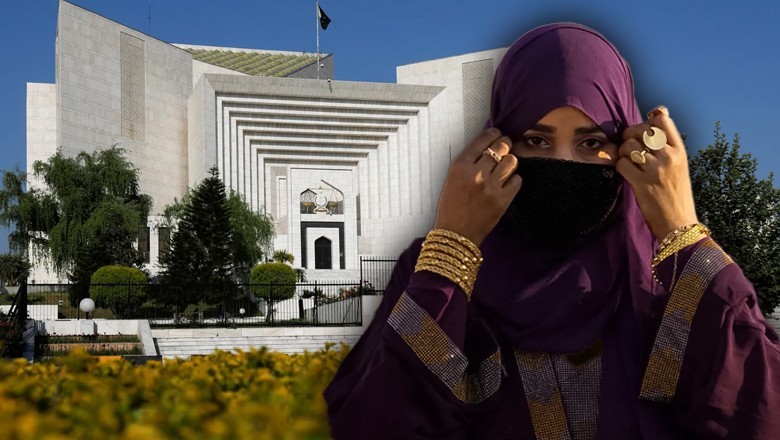SC allows converted Muslim woman to live with husband after court testimony

Web Desk
|
7 Aug 2025
The Supreme Court Karachi Registry on Wednesday heard a petition filed by a resident of the Defence area resident concerning the alleged forced conversion and marriage of his daughter. Chief Justice of Pakistan (CJP) Justice Yahya Afridi presided over the hearing and allowed the woman, Beenish, to live with her husband.
According to reports, Beenish, who had embraced Islam, appeared before the court and responded to the chief justice's queries.
CJP Afridi asked Beenish whether she had been coerced into converting to Islam or marrying against her will. He also inquired about her age at the time of marriage.
In response, Benish told the court that she had converted and married by her own free will. She stated that she was 28 years old at the time of marriage and was happy with her husband.
Read more: US woman converts to Islam, marries online lover in KP's Upper Dir
However, she alleged that her father had been threatening her.
Chief justice assured the woman she will not be threatened further. The court subsequently allowed her to go with her husband and ordered authorities to provide security to Beenish and her family.
It is worth noting that during an earlier hearing on August 4, the petitioner's lawyer had informed the court that two of his client's daughters had gone missing in 2021.
A case had been registered for their disappearance, and the matter had also been taken to the Sindh High Court. The police had reportedly submitted a 'C Class' challan in the case, indicating that no evidence was found to proceed.
Check: Muslim man converts to Hinduism to marry GF in India
During the latest hearing, the Chief Justice remarked that the court record showed Beenish had married of her own volition.
The petitioner’s counsel, however, argued that the police had failed to notify the father about any contact with his daughter or her marriage for over a year.
CJP Afridi responded, stating that if any element of coercion was found in the marriage, the court would take necessary action. However, baseed on Benish’s testimony, the case was disposed of.












Comments
0 comment